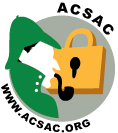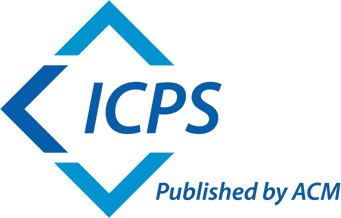Software Security, Protection, and Reverse Engineering Workshop (SSPREW)
Important Dates (Extended Deadlines)
Paper Submission: September 16, 2016
Author Notification: October 21, 2016
Camera Ready Version: November 12, 2016
Workshop: December 5-6, 2016
Call for Papers
The 6th Software Security, Protection, and Reverse Engineering Workshop is now a consolidated workshop that merges into one venue the Program Protection and Reverse Engineering Workshop (PPREW) and the Software Security and Protection Workshop (SSP), which both started in 2011.
Software security is a discipline that lies at the crossroads of security, cryptography, networks, software engineering, computer architecture, operating systems, and compiler design. Program protection and reverse engineering techniques both find their practical use in malware research and analysis as well as legitimate protection schemes for intellectual property and commercial software. The joint workshop will focus on how to protect software from tampering, reverse engineering, and piracy. Strongly encouraged are proposals of new, speculative ideas; evaluations of new or known techniques in practical settings; and discussions of emerging threats and problems in metrics, tools, and procedures for evaluating tamperproofing, watermarking, obfuscation, birthmarking, and protection algorithms in general. Likewise, reverse engineering of low-level constructs such as machine code or gate-level circuit definitions through static and dynamic analysis is geared to recover higher levels of abstract information to determine a program's function as well as to classify it with existing similar code (which is typically malicious). Both program protection and reverse engineering techniques are utilized for legitimate and illegal purposes. Theoretically, protection is seen as impossible in the general case but the promise of mathematically based transformations with rigorous cryptographic properties is an area of active interest. Given enough time and resources, reverse engineering and de-obfuscation is assumed to be achievable.
SSPREW will provide a discussion forum for researchers that are exploring theoretical definitions and frameworks, implementing and using practical methods and empirical studies, and those developing new tools or techniques in this unique area of security. We expect the workshop to provide exchange of ideas and support for cooperative relationships among researchers in industry, academia, and government.
We invite papers on program protection, reverse engineering, and software security used in legitimate contexts. Particular interest will be given on studies and experiments that explore the boundary of both practical methods and their theoretical limits. Topics for the workshop can cover a wide variety of tools, techniques, and methodologies related to security aspects of software and hardware systems, with particular focus on subversion/exploitation or protection of program integrity, confidentiality, authorization, and intellectual property. Ongoing work with
preliminary results, theoretical approaches,
tool-based methods, and empirical studies on
various methods are all appropriate for submission. Modeling of software security, man-at-the-end (MATE) attacks, metrics and evaluation frameworks, and new cutting-edge techniques are in view as well. Papers can address studies on hardware/circuit based
methods or software/assembly based mechanisms.
We expect the workshop to provide exchange of
ideas and support for cooperative relationships
among researchers in industry, academia, and government. Topics can include but are not limited to:
|
|
Papers must describe original work, be written and presented in English, and must not substantially overlap with papers that have been published or that are simultaneously submitted to a journal or a conference with refereed proceedings.
Submission Guidelines
Original, unpublished manuscripts of up to
12-pages including figures and references must
follow the ACM SIG proceedings format. All submissions must be in PDF and paper templates are available for
LaTeX and Word at:
http://www.acm.org/sigs/publications/proceedings-templates.
Authors should apply ACM Computing Classification
categories and terms. The templates provide space for this indexing and authors should refer to the Computing
Classification Scheme at: http://www.acm.org/about/class/1998
Submitted papers must adhere to the
ACM Copyright
Policy and the
ACM Policy on
Plagiarism. Concurrent submissions to other
conferences, workshops, journals, or similar
forums of publication are not allowed.
Submissions that do not meet these guidelines
may not be considered.
The URL for submission of papers is through Easy Chair.
Publication
For accepted papers, at least one author must register for, attend, and make a presentation at SSPREW in order for the paper to appear in the workshop proceedings.
To expedite publication of accepted papers in the workshop proceedings, camera ready papers should have the following properties:
- PDFs should be optimized for fast web viewing.
- PDFs should Include the rights management statement and bibliographic strip on the bottom of the first page left column. The specific wording of this statement is emailed directly to the authors of accepted papers through the ACM Rights Management System.
- All fonts in the PDF must be Type 1 fonts (scalable), not Type 3 (bit-mapped).
- All fonts MUST be embedded within the PDF file.
Documentation on how to embed fonts is provided by ACM. Authors should download and use the ACM Digital Library optimal distiller settings file, ACM.joboptions.
Organizing Committees
Program Chairs
Mila Dalla Preda, University of Verona, Italy
Natalia Stakhanova, University of New Brunswick, Canada
General Chair
J. Todd McDonald, University of South Alabama, USA
Program Committee
Todd Andel, University of South Alabama, USA
Lorenzo Cavallaro, Royal Holloway, University of London, UK
Mariano Ceccato, Fondazione Bruno Kessler, Trento, Italy
Bjorn De Sutter, University of Ghent, Belgium
Alessandra Gorla, IMDEA Software Institute, Spain
Yuan Xiang Gu, IRDETO, Canada
Sylvain Guilley, TELECOM-ParisTech and Secure-IC S.A.S., France
Sergio Maffeis, Imperial College London, UK
William Mahoney, University of Nebraska Omaha, USA
Jean-Yves Marion, INPL, France
Mizuhito Ogawa, Japan Advanced Institute of Science and Technology, Japan
Mathias Payer, Purdue University, USA
Clark Thomborson, University of Auckland, New Zealand
Michael Wiener, IRDETO, Canada
Steering Committee
Christian Collberg, University of Arizona, USA
Jack Davidson, University of Virginia, USA
Arun Lakhotia, University of Louisiana-Lafayette, USA
Roberto Giacobazzi, University of Verona, Italy
Yuan Xiang Gu, IRDETO, Canada
For more information, please visit the workshop's web page
Workshop Registration
If you are interested in attending, please check off the appropriate box on the conference registration form and add in the Software Security, Protection, and Reverse Engineering Workshop (SSPREW) Workshop fee.
Hosted by the 32nd Annual Computer Security Applications Conference (ACSAC). ACSAC will be held at the Hilton Los Angeles/Universal City, on Monday, and Tuesday December 5 and 6, 2016.







